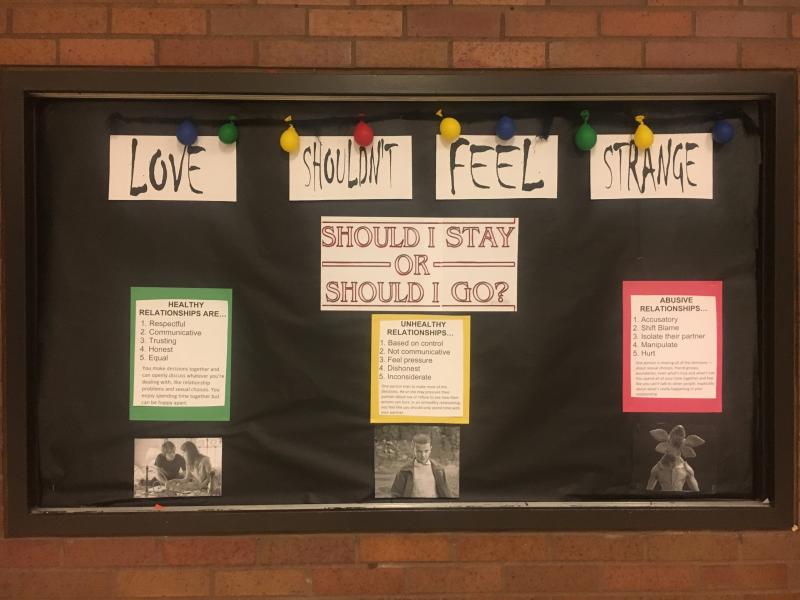Meet Them Where They're At

Last week was my second round of Teen Pregnancy Prevention classes at Roberto Clemente Community Academy. By now, I've taught this curriculum in five different schools to hundreds of teenagers from 7th grade to 12th grade. I generally go through the same topics to every class and I thought I more or less knew how to respond to questions such as,'Can you get pregnant if you have sex standing up?" Or,'Is there any physical harm in masturbating?" What I didn't anticipate was a controversial behavior (in my opinion) being a collective norm amongst the students.
The students were playing a'healthy relationship" game where they categorize behaviors I give them as healthy, unhealthy, or abusive. I asked one student standing under the'healthy" category to read their card out loud. The student read,'My partner controls my social media account and passwords."'Okay," I said.'Why do you think that is a healthy behavior?" I was expecting him to think about it for a minute and change categories. Students often misread the cards and then when reading them out loud change their minds. But that didn't happen. The student stayed put and he explained,'Well, my girlfriend has the password to my phone and Facebook because I have nothing to hide and I want to show her that I'm not talking to other girls behind her back." The other students nodded in agreement.'BUT THEN WHERE'S THE TRUST?!" I wanted to say.'WHAT ABOUT YOUR PRIVACY? THINK OF THE CONSEQUENCES!" But I didn't say that. If I have learned anything about teaching in high schools, it's that teenagers do not like being lectured. Nor do I have a right to tell this boy that his relationship is unhealthy.
I know unhealthy relationships have communication difficulties, struggle for control, and distrust. I was alarmed in hearing that giving away private information is'normal." I've had a Facebook since I was in high school, but I have not once considered giving out my passwords to a partner. The students must have seen the look on my face (sometimes I can't help it) and told me that this is how dating is now. That no one feels controlled and it is their choice to disclose this information with their partner. In fighting my urge to tell these students what a healthy relationship should look like, I decided to ask, instead of tell them, what a healthy relationship is. What is most important to them? What is a deal breaker in a relationship? We turned these questions into a discussion about boundaries, privacy, relationship values, and communication strategies.
What I value the most in my own relationship might not be what another person values. And assuming that these teenagers are just being'young and reckless" is a thought that divides and shuts down open discussion. I still think giving social media passwords to your significant other is an unhealthy behavior, and maybe the students still think that it is the right thing to do when you love somebody. However, our discussion meant the students were thinking about themselves in relation to others, their values, and their choices. Sometimes it is difficult to go outside your idea of right and wrong and to listen to what others are saying. I am definitely still learning how to meet someone where they're at and listen. It's moments of open discussion and connection to the students, despite our differences, that I value the most.
This blog post was written by NHC Chicago 2017-18 member Amanda Robinson.
Amanda is a Health Educator with Erie Family Health Center - Clemente and Teen Center.